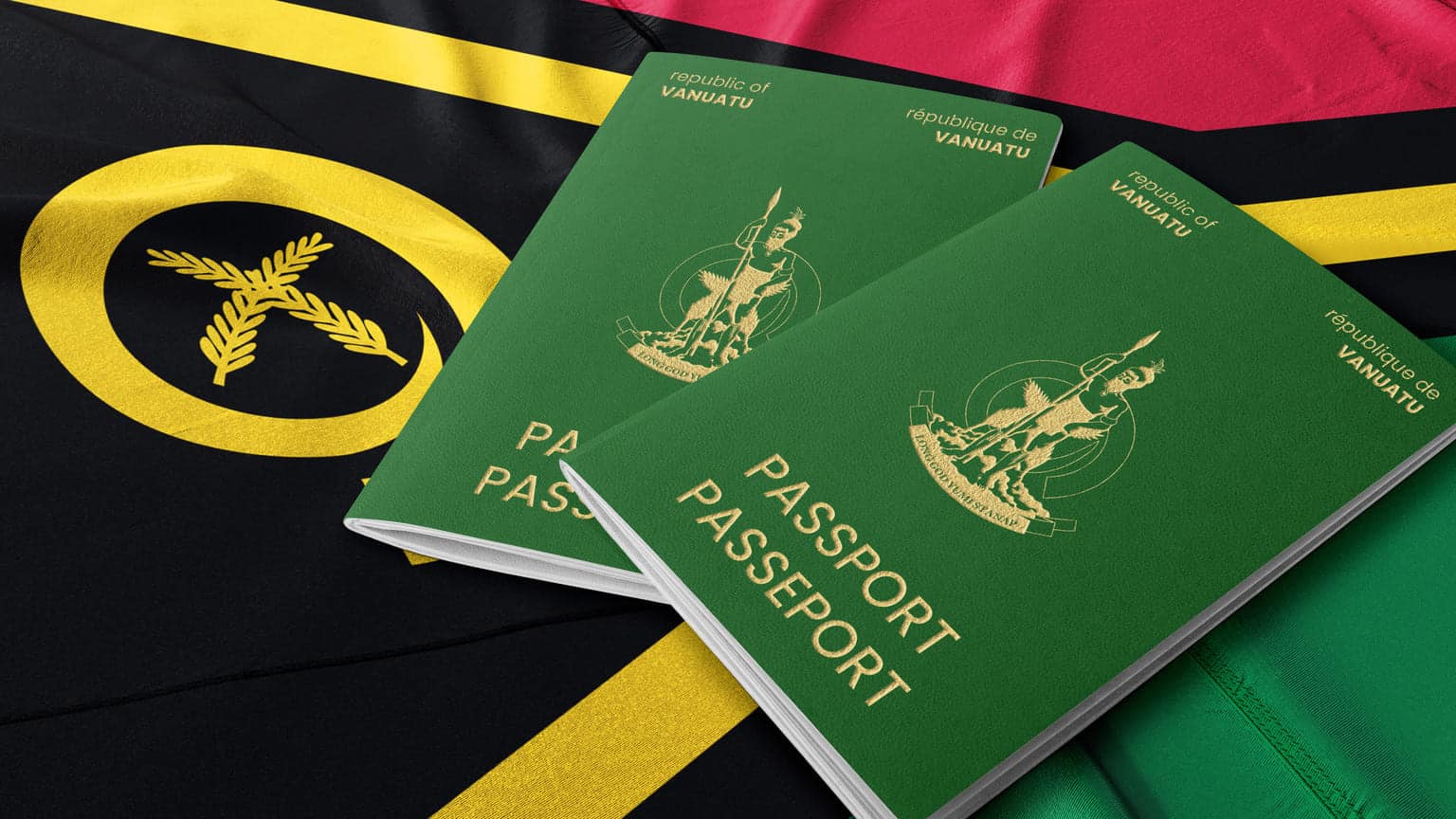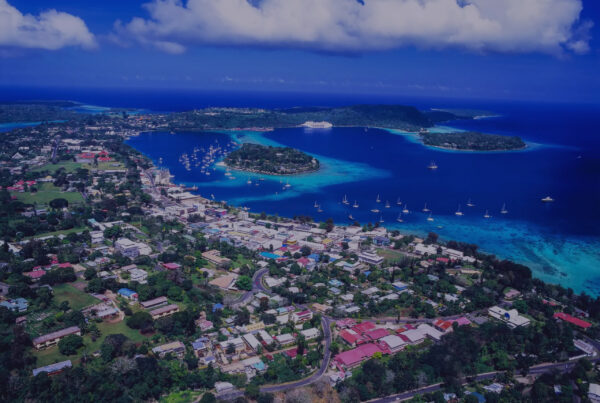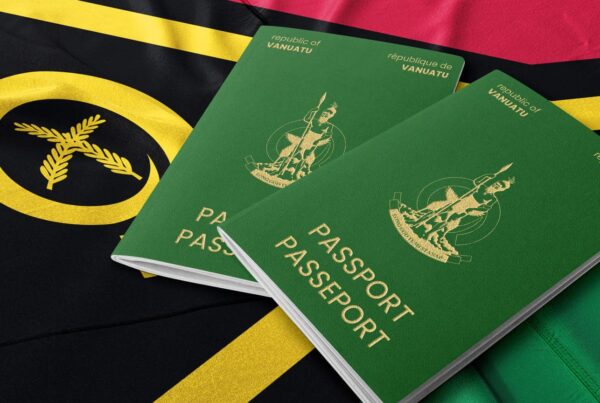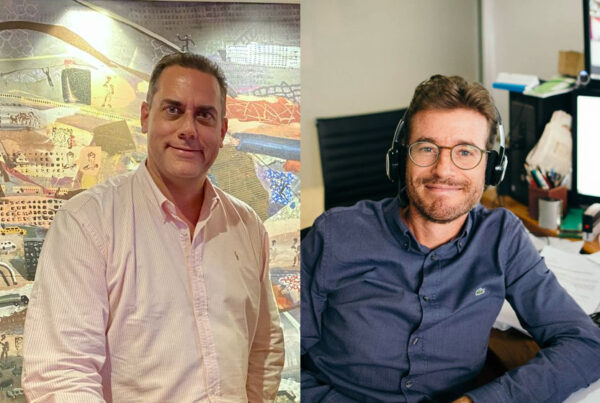By Douglas Patterson
It would be a natural reaction for anyone reading The Guardian’s article entitled “Citizenship for sale: fugitives, politicians and disgraced business people buying Vanuatu passports” to simply shake their head in dismay. Here we go again – another article detailing Vanuatu’s reckless and embarrassing folly!
It is hardly surprising that these controversial “passport sales” and the agents involved in selling them, have divided opinion, however, before hastily condemning Vanuatu for promulgating these various passport acquisition schemes, it might be helpful to take a wider look at the issue, including a more critical look at those who may feel tempted to adopt a superior or even moralising attitude towards Vanuatu.
This Guardian article was able to be more precise than many other similar critiques because they were able to “name names” of 2000 or so individuals who acquired Vanuatu passports in 2020 simply by purchasing them. Among that group, almost inevitably, given what these schemes permit, were a number of people with highly questionable reputations internationally, with some actually “wanted” by police authorities.
Anyone reasonably informed about these schemes would probably concede that they are bedevilled by a number of serious flaws. A perceived lack of transparency and accountability. Questionable oversight of the approval process. The reported excessive commissions earned by the “passport agents”. The understandable concerns that many of the agents do not have the background or the means to carry out the level of due diligence that is essential to properly qualify the applicants, or worse, that certain of them are merely “fronts” for politicians with whom the sizeable commissions are shared.
All of these concerns are legitimate fodder for public debate within Vanuatu, but since nearly half (42%) of total Government revenue is reportedly earned by selling passports, the reality is that, given the ever-present need for replenishing the public purse, there is virtually no chance that these schemes will be abandoned by any Vanuatu Government, no matter how adverse international publicity may be, unless something else were to appear to replace this essential cashflow.
The cumulative effect of several disasters in recent years has left Vanuatu’s real economy (ie: local businesses conducting their operations within the country) on its knees. Cyclone Pam in 2015; the Bauerfield runway debacle in 2016 and the subsequent disruption to international air traffic for lengthy periods; the protracted uncertainty of whether or not income tax will be introduced, and the corrosive effect of this on business confidence; Cyclone Harold in 2020, and of course the current “Covid crisis” and consequent border restrictions, which has excluded tourists and investors from the country for the past 16 months.
In this difficult, some would say desperate, economic climate, is it really surprising that Vanuatu would try any means possible to continue earning this what might be called “easy money” selling passports? No manufacturing is involved, no significant investment is needed, no skilled workforce is required. And the leg work is outsourced to a range of agents.
Motivated by similar reasons as Vanuatu, at least a couple of dozen other countries, including some of our development partners, offer pathways to permanent residency and citizenship on the basis of investment.
Saint Lucia, Dominica, Antigua & Barbuda, St Kitts and Nevis, Cambodia, Moldova, Grenada, Montenegro, Bulgaria, Turkey, Malta and Cyprus all offer citizenship based on investment. Others, such as the UK, the US, Australia, New Zealand, Spain, Greece, Portugal, Canada, Thailand and Latvia offer long term and permanent residency visas that can in certain circumstances lead to eventual citizenship.
There is a plethora of information available on the various schemes offered by these countries, whose rules and requirements change from time to time.
In the United Kingdom for example, a “Tier 1 Investor Visa” is available to applicants from outside the European Economic Area and Switzerland. A GBP 2 million investment in the UK economy is required. The visa allows for a stay for three years, four months, which can be extended a further two years. Applicants can apply for indefinite leave to remain after five years in the UK and can apply for British citizenship after spending six years in the country.
In New Zealand’s “Investor 1” scheme, an investment of NZD 10 million is required over three years. There is no maximum age limit, no language requirement, and no business experience requirement. The “Investor 2” scheme, requires an investment of NZD 3 million over four years, and applicants must be under 65, speak English and have at least three years of business experience as well as having a minimum of NZD 2.5 million in available funds or assets.
Australia also offers a residency program that can lead to citizenship in the long term. Applicants need a personal net worth of a least USD 2.25 million which must apply for the two years prior to the individual’s application, and an investment of USD 1.5 million into an Australian project or enterprise, designed to benefit the Australian economy.
In the United States the EB-5 visa leads to US conditional resident status which can be a pathway to eventually obtaining a US passport. Two years after conditional residency is granted, investors and their families become eligible for permanent residency. There are a number of different investment options available.
For example, an Investment of USD 500,000 in a rural area, or area with high unemployment, into a new commercial enterprise to create 10 new full-time jobs. Another option is the direct investment of USD 1 million into an existing US commercial enterprise. The funds may stay invested until permanent resident status is granted, which typically takes about four years.
The US also offers something known as the “Regional Center Program” where applicants, who must prove a net worth of at least USD 1 million and invest USD 500,000 into a designated project, becoming a limited partner of the enterprise. The applicant is then free to live and work anywhere in the US.
The common element in all of these schemes is that they target the wealthy and they are essentially based on investment.
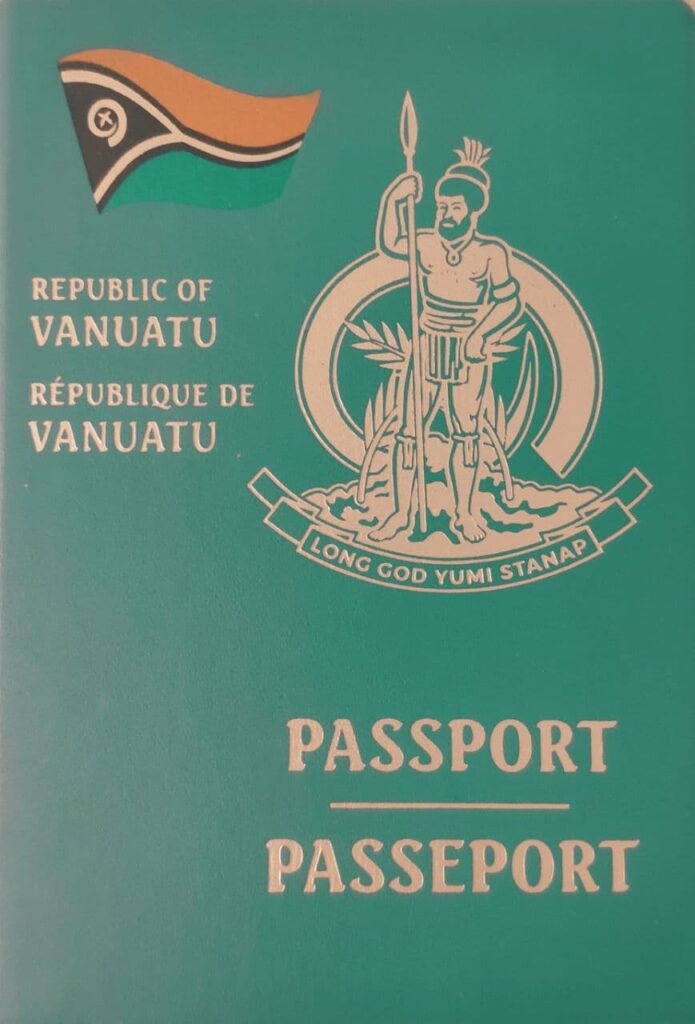
So, is the criticism of Vanuatu’s passport schemes actually less about the schemes themselves and more about the perceived deficiencies in the approval process that has allowed a number of these “shady characters” to slip through the net and successfully obtain Vanuatu passports?
Unfortunately, most notably because of Vanuatu’s history as a tax haven, raised again in the Guardian article, the country has long been the object of suspicion on the international stage, with our name appearing on regulatory grey and blacklists, impeding business transactions. Those of us engaged in legitimate business in Vanuatu frequently encounter the obstacles this causes. This also makes it difficult to attract large scale reputable investment.
This “shadow” that still hangs over the country because of the murky activities that such a secretive status supposedly enables, is difficult to dislodge. And it undoubtedly colours many people’s view of Vanuatu.
However, it is difficult to consider our predicament without concluding that there is often a distinct air of hypocrisy when Vanuatu is discussed.
Anyone remotely in touch with how the world works knows that the operations of the most notorious financial criminals and the biggest examples of fraud and money laundering, including those by international banks, take place far away from tiny Vanuatu’s shores.
In fact, the worst offences occur in the very countries whose Governments and international organisations put pressure on Vanuatu to reform itself so that we can become a more responsible global citizen, and less of a blacklisted pariah.
The dismal failure of oversight by regulators over many years has been a feature of numerous business failures, and has permitted outrageous misconduct that has been costly to millions of small investors and ordinary people all around the world. Cynics may not be so wrong when they claim that fines imposed on wayward banks or corporations, even when they amount to billions, have merely become part of the cost of doing business, absorbed, almost invisibly, into all the other operating expenses.
The 2017 Australian Royal Banking Commission unearthed a cesspool of corporate corruption and misconduct among the top banks, resulting in the nation’s four largest banks – Commonwealth Bank of Australia (CBA), Westpac, ANZ and NAB provisioning over AUD 8 billion to refund customers for overcharged fees, deceptively sold products and non-compliant financial advice.
In 2019, Westpac was sued by Australian regulators over 23 million breaches of anti-money laundering laws, the country’s biggest ever such scandal, and ANZ plans to refund nearly three and a half million customer account after the inquiry revealed it wrongly charged fees.
In addition to being convicted of 87 counts of breaking a law banning unsolicited life insurance sales calls and agreeing to pay AUD 25 million to more than 40,000 past and current staff, in 2018, the CBA agreed to pay AUD 700 million to settle charges of money laundering control failures. This was Australia’s highest ever corporate fine.
In the United Kingdom, the Financial Conduct Authority (FCA) states that since January 2011 British banks and financial institutions have paid more than GBP 37 billion in compensation to customers who were wrongly sold PPI (payment protection insurance), with Lloyds Banking Group accounting for more than half of this total. Lloyds was also fined GBP 218 million in the LIBOR interbank rate scandal, and a further GBP 28 million for coercing employees into selling certain bank “products”.
In the eight years following the Global Financial Crisis, the UK’s five biggest banks were fined more than GBP 25 billion by various regulatory agencies around the world including the Britain’s Financial Conduct Authority (FCA). The Royal Bank of Scotland Group was fined GBP 399 million in 2014 for unlawfully assisting certain favoured customers to adjust foreign exchange rates in their favour. Barclays Bank has also paid hefty fines of nearly GBP 60 million for its actions as well as USD 360 million to American enforcement agencies for their own involvement in manipulating the LIBOR rates. In 2012, after Standard Chartered was found to have engaged in money laundering activities by concealing from the US Government billions of pounds of financial transactions with Iran, the US levied a USD 300 million fine.
“The Russian Laundromat” scandal was a scheme involving around 500 people, many of whom were wealthy Russians, to transfer up to USD 80 billion out of Russia between 2010 to 2014 using a network of global banks.
The UK Government is struggling to shed the image that London, basking in its reputation as perhaps the world’s pre-eminent international financial centre, enabled Russian oligarchs to launder money through the city.
The American corporate landscape is littered with financial train wrecks, many of them causing monumental impact on investors, employees and even other countries. Simply listing the worst culprits of the last 20 years sends a shudder through the collective memory, and serves as a chilling reminder of the extent certain companies and individuals will go to in order to enrich themselves.
Waste Management reporting over USD 1.7 billion in fake earnings. Enron’s accounting fraud causing employees to lose jobs and pensions, and shareholders a loss of USD 74 billion. WorldCom inflating its assets by almost USD 11 billion costing 30,000 jobs and USD 180 billion lost by investors. HealthSouth Corporation inflating earnings by over USD 1.8 billion. The Federal Home Loan Mortgage Corporation, also known as Freddie Mac, a US federally-backed mortgage financing giant, falsely reporting over USD 5 billion in earnings. AIG’s USD 4 billion accounting fraud. Lehman Brothers concealing over USD 50 billion in loans. Bernie Madoff duping investors out of nearly USD 65 billion……..and the list goes on.
And although the Global Financial Crisis is often referred to as an economic crisis, the reality is that it came about, not only by reckless speculation, but because of a catalogue of unethical conduct, glaring conflicts of interest and plain and simple corporate fraud. This involved bankers, insurers and ratings agencies eager to fill their own coffers. The lack of personal legal consequences for those behind such blatant misconduct meant that in 2016 Wells Fargo, at that time the world’s largest bank, felt it was worth the risk to create millions of fraudulent savings and checking accounts on behalf of their clients without their consent.
In Delaware, Nevada, Wyoming and South Dakota, the world’s wealthy can benefit from a range of “tax haven” like services that many of the Caribbean and South Pacific finance centres are no longer able to offer.
None of the world’s major economies is immune to such behaviour. Last year, the Wirecard financial fraud case was one of the biggest ever in Germany and Europe when it was discovered that around USD 2 billion in liquid assets were non-existent. In the run up to France’s 2007 Presidential election, Luxembourg’s Clearstream Banking S.A. was alleged to have assisted numerous prominent French politicians and companies to evade taxes in what became known as the Clearstream affair. Around the same time Société Générale was embroiled in a massive breach of trust and forgery resulting in losses valued at nearly Euro 5 billion. Then, in 2011, Caisse d’Epargne admitted it had lost Euro 600 million caused by rouge trading in the futures market.
The financial scandals at the Japanese firms Olympus and Toshiba revealed the same self-serving and deceptive characteristics. A shareholder derivative suit in 2019 resulted in fines being imposed on three Olympus board members for nearly 60 billion yen (about USD 594 million), the largest of its kind in Japanese history. At Toshiba in 2015, the CEO resigned when confronted with an accounting scandal linked to USD 1.2 billion in overstated operating profits.
In Latin America, financial scandals involving politicians and business people are just as rife. Mexico’s President Enrique Peña Nieto and Ecuador’s President Rafael Correa have both had to defend serious accusations, Peru’s Pablo Kuczynski was investigated for laundering State assets, and Argentina’s Cristina Fernández de Kirchner for receiving bribes.
In 2016, the “Panama Papers” disclosed more than eleven million documents involving 200,000 companies and over 72 heads of state from around the world. And in Brazil’s 2013 Petrobras affair, it was discovered that the company had diverted public funds, permitted serious irregularities in contracts and knowingly paid bribes.
The Odebrecht scandal, arguably the biggest corruption scandal in Latin America, involved the payment by the Brazilian construction giant, of nearly USD 800 million in bribes between 2001 and 2016 to politicians, political parties and other intermediaries in more than half of the Latin American countries, and in Mozambique and Angola.
Recent reports by professional services firm PwC detail the rise of fraud and financial crime in the Middle East, most noticeably in the last couple of years.
In China, Luckin Coffee agreed to pay a USD 180 million penalty imposed by the U.S. Securities and Commission (SEC) to settle accounting fraud charges for intentionally falsifying its 2019 revenue and understating a net loss. At Ezubao, China’s largest online finance business, Chinese police arrested 21 employees on suspicion of fleecing 900,000 investors for USD 7.6 billion, possibly the biggest financial fraud in Chinese history. In another scandal, the former chairman of China Huarong Asset Management pleaded guilty to taking 1.8 billion yuan (USD 259 million) in bribes between 2008 and 2018.
What this widespread and brazen misconduct – some would say criminality – around the world shows is that financial wrongdoing knows no national boundaries, and also that Vanuatu is a minnow in this ocean. However, as small as we may be on the world stage, Vanuatu is just as guilty of high level misconduct. 70 reports from the Vanuatu Ombudsman’s office published between 1994 and 1999 detail this country’s many serious failures of leadership.
But we are surely entitled to ask, “Let he who is without sin throw the first stone.”
This does not mean that Vanuatu should not listen to criticism, whether that is of the passport schemes or any other Government policies or laws. Other countries, notably Malta, have also had their citizenship schemes tarnished by the disclosure that a number of unsavoury characters have obtained passports, giving them free access to all the other EU countries.
However, in this globalised world, we need these valuable relationships with our regional and international partners for both investment and aid. So, while these passport schemes are likely to continue to divide the country, as long as they exist, should we not be taking every possible measure to ensure they are managed diligently?
Neither Vanuatu’s indigenous citizens nor those of us who have obtained our Vanuatu citizenship by naturalisation, and by investing in the country and creating local employment, have any wish to see foreigners simply buying their Vanuatu passport with the minimal of scrutiny, especially if that includes members of transnational crime syndicates and other “persons of interest” to police authorities, who may be using a Vanuatu passport to help flee their legal problems.
There are a number of obvious ways to improve things, in order to prevent the sort of undesirable outcomes reported by the Guardian, and to prevent further damaging articles in the same vein appearing. Perhaps a more rigorous vetting process for agents? Or a requirement to invest directly in the country in a business enterprise or property, similar to the schemes in the UK, US, New Zealand and Australia? This would at least ensure a practical commitment to the country.
Or perhaps, to help ensure much better due diligence, a single, centralised Government office could be created, with international assistance, to process these applications, suitably staffed by capable and experienced, non-political, personnel accustomed to dealing with Interpol, and other international police and regulatory organisations?
After all, every foreigner wishing to invest in Vanuatu applies to the same one office, the Vanuatu Foreign Investment Promotion Agency. It is surely not too big a leap to suggest that every foreigner wanting a passport should be required to do the same. The passport revenue would certainly be able to fund the running of such an office.
This would also help ensure that the Government receives the lion’s share of this revenue. It will require considerable political commitment to push for any change, but surely at the end of the day, if these schemes are to continue, we would all benefit from the reassurance that they are following the best international practices available?


